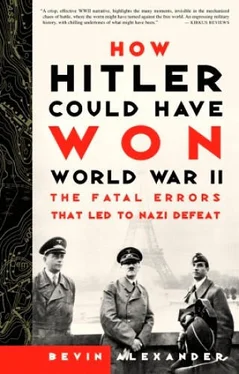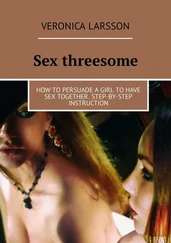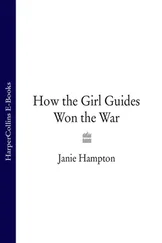This book is about the opportunities Hitler possessed that might have led to victory. But such was not to be, because of his inability to see the indirect way to victory, and his fixation on frontal assault of the Soviet Union.
1 GERMANY’S OPPORTUNITY FOR VICTORY

EARLY ON THE MORNING OF MAY 10, 1940, THE GREATEST CONCENTRATION OF armor in the history of warfare burst across the eastern frontiers of Belgium and Luxembourg. In four days, 1,800 tanks in seven panzer, or armored, divisions broke through the French main line of resistance on the Meuse River. Seven days later they reached the English Channel 160 miles away and cut off the most powerful and mobile of the French and British forces, who were now in Belgium. Those Allied soldiers who did not surrender were forced to evacuate by sea at Dunkirk.
A month later France capitulated, and the British were thrown onto their islands with few weapons and only twenty-one miles of the Channel to keep them from being conquered as well.
Germany had achieved the most spectacular, rapid, and overwhelming military victory in the twentieth century. It dominated Europe from the North Cape of Norway to the Mediterranean Sea and from Poland to the Atlantic. Victory lay within the grasp of the German dictator, Adolf Hitler.
Yet at this moment of his greatest success—with only feeble barriers remaining before he could create a virtually invincible empire embracing Europe, North Africa, and the Middle East—Hitler turned away and embarked on a course that led to the destruction of the “Thousand-year Reich” in only five years.
A number of high-command German officers saw the opportunities open in 1940 and urged Hitler to seize them. Hitler considered them, but in the end turned them down. After the victory over France, Hitler focused his attention on destruction of the Soviet Union and carrying forward his schemes to destroy the Jews and other peoples he hated.
Hitler came to this decision by an incredibly convoluted and illogical process. Since Britain refused to sign a peace treaty, and since invading Britain would be extremely hazardous given the strength of the Royal Navy and the weakness of the German navy, Hitler concluded that the only way to overcome Britain would be to destroy the Soviet Union. Hitler decided that Russia was Britain’s chief remaining hope for assistance, its “continental dagger,” and once the Soviet Union was destroyed, the British would see reason and give in.
This, of course, was entirely wrong. The British were relying on the United States, not Russia, for their salvation. “I shall drag the United States in,” British Prime Minister Winston Churchill told his son after France fell. And the American president, Franklin D. Roosevelt, was doing everything he could to help. But Roosevelt had to play a cagey game. A majority of the American electorate was deathly afraid of getting into another war in Europe, and wanted to isolate the country behind its two oceans. Only a minority recognized the terrible danger of Adolf Hitler and realized the United States would have to enter the war if Nazi Germany was to be defeated.
Perhaps Hitler was engaging in wishful thinking in turning toward the Soviet Union, concocting a theory of the close connection of Britain to Russia to justify what he wanted to do anyway. He hated Communism, feared the growth of a powerful industrial state that was proceeding apace under Joseph Stalin, and wanted to seize a large segment of Russia and Ukraine. Besides, he could reach the Soviet Union, while he couldn’t reach Britain.
Actually, Hitler did not want to destroy Britain, and this played a role in his decision to turn eastward. He admired the British Empire and wanted to reach an understanding with it. However, Hitler’s conditions were that Britain would keep its empire while Germany would have a free hand on the Continent. Britain could never accept such a settlement, however, because it could not survive as an independent power if Germany controlled the European continent.
Hitler would listen to no criticism. His senior advisers knew the war in the west had been only half-won, and few thought it could be finished on the plains of Russia in the east. The Soviet Union was so vast that a war there could expand into limitless space—placing potentially impossible demands on the German war machine. A war against Russia would be nothing like the war in the west, where distances were limited, populations concentrated, objectives close, and the Atlantic Ocean a finite boundary.
On the advice of General Erich von Manstein, Hitler had changed the Schwerpunkt— or main weight—of the attack from northern Belgium to the Ardennes, when the top German generals had advised otherwise. This decision had given Germany its greatest victory in history. Since the senior military leadership had been wrong, and he (and Manstein) right, Hitler concluded that he could rely on his “intuition.” This intuition told him to downgrade the war against Britain and carry out the two desires that had obsessed him from the early 1920s—destroying the Soviet Union and the Jews of Europe.
Hitler’s belief in Lebensraum was based on his idea that the German people needed more land to produce more food. Classical economics had long since proved that industrial states could buy grains and other foods for their people and did not need additional farmland. But Hitler paid no attention. Besides, the idea of more land resonated with the German people. Their parents and grandparents had sought expansion into central and eastern Europe in the early years of the century; this was one of the underlying causes for World War I, which Germany had lost. In Mein Kampf Hitler wrote that Germany was not a world power in 1914–1918 because it could not feed its people, and would not become a world power until it was able to do so.
Hitler’s compulsion to destroy the Jews and other categories of people rested on no logical basis, only on the most malignant of prejudices. He made the Jews scapegoats for every problem that Germany faced—even the rise of the Soviet Union, whose revolution he falsely claimed had been carried out and sustained by Jews.
Hitler’s political savvy warned him to avoid getting openly involved in this pogrom of hate and murder, however, and he left its operation mostly to underlings, especially Heinrich Himmler and Reinhard Heydrich of the Schutzstaffel or SS.
In the butchery that followed, Hitler and his willing German executioners killed 6 million Jews in what is now called the Holocaust, perhaps a million Poles and Gypsies, thousands of persons who had mental or physical disabilities or who objected to his ideas, and 7.7 million Soviet civilians. This does not count the 9.1 million Allied personnel killed in battle (7.5 million Soviets), and 5 million Soviet soldiers who died in prisoner-of-war camps or were murdered by their captors.
Aside from their horror, the killings of civilians and prisoners of war deprived Germany of the labor and mental contributions of potentially valuable workers and took immense amounts of transportation, resources, personnel, and energy badly needed for the war effort.
It is easy enough to assert that Hitler was mad. He most certainly was. His fixation on these two monstrous, irrational goals proves it. But Hitler also was in part a sensible person, possessed of great intelligence and superior political skills. His fantastic success up to mid-1940 demonstrates this.
Many of the men who served Hitler believed they might tap the sane part of Hitler’s mind and deflect the mad part, and in this way lead Germany to a successful outcome of the war. The events in Hitler’s headquarters from mid-1940 onward are a rolling drama of this attempt. While a number of far-sighted officers saw the way to succeed and tried to convince him, toadies catered to Hitler’s prejudices. Sometimes Hitler listened to one, sometimes to the other, and sometimes to no one but himself.
Читать дальше



![Джонатан Димблби - Barbarossa - How Hitler Lost the War [calibre]](/books/385421/dzhonatan-dimblbi-barbarossa-how-hitler-lost-the-w-thumb.webp)









